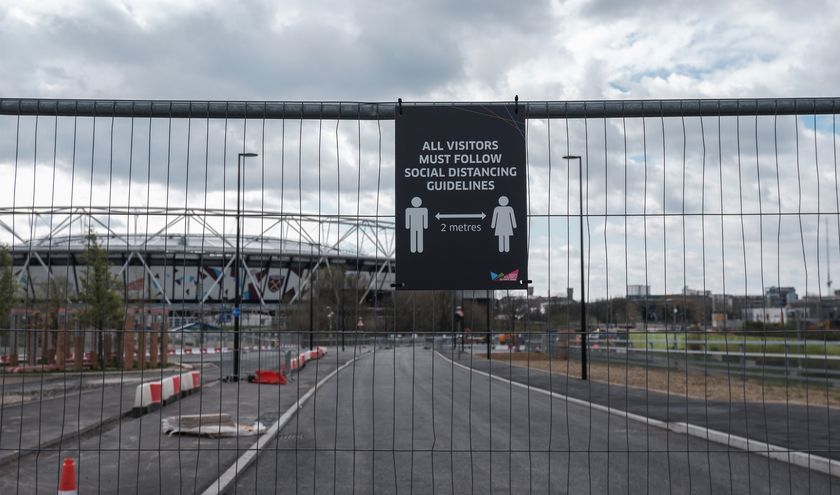On a blustery rain-soaked evening last month in Stratford, East London, I attended a packed gathering of public health practitioners and community representatives. Around 200 people were celebrating how five years earlier they had come together to help their community in a deeply scary period in our history – for, it was in November 2020, that England entered the second ‘lockdown' of the Covid-19 pandemic.
But the event was also an opportunity to be present at the launch of Jason Strelitz's new book, Same Storm Different Boats. Strelitz was the director of public health in Newham during the pandemic and his book is a vivid and uplifting account of how science, clinical practice and community resilience together insulated the public during those awful pandemic years. It is also a reminder of how health inequalities, racism and occupational hierarchies linked into each other to render more people vulnerable to that deadly disease.
Exactly five years ago, at the start of England's second national lockdown the prevailing Covid variant was still the original SARS-CoV-2, but the Alpha (B.1.1.7) or ‘Kent' variant had just begun to emerge. This Alpha or Kent variant rose to prominence during November and drove the later winter surge.
Building trust with the public requires a focus on the character of your institution's conduct, rather than a focus on the scepticism of the public. They are right to be sceptical. It is not about getting the public to trust you, but about how you need to make sure that every day and every week, everyone in your organisation is acting honestly, consistently and reliably so that they may be considered trustworthy.
The idea behind the second lockdown was to rapidly bring down infection rates and avoid overwhelming the NHS during a period of rising cases heading into winter. By that time no Covid vaccines had been approved or rolled out to the public during this period. Everyone was entering a dark tunnel not knowing how long it would be until we emerged.
Same Storm Different Boats is a heartwarming account of how a locality which found itself with the highest incidence of Covid in the country fought back. It was a time when scientists, clinicians, public health practitioners, councils and community actors got together during that period of chronic uncertainty to build hope, support the most vulnerable and sustain opportunities at the local level. The book puts place, locality and community at the centre of our national Covid story.
In his book, Strelitz recounts the scientifically based pragmatism of the national public health advice at the time. This is an account of truth-telling in the raw.
Building trust with the public requires a focus on the character of your institution's conduct, rather than a focus on the scepticism of the public. They are right to be sceptical. It is not about getting the public to trust you, but about how you need to make sure that every day and every week, everyone in your organisation is acting honestly, consistently and reliably so that they may be considered trustworthy.
And Strelitz's book does not avoid the difficult questions. He focuses, among other things, on school closures and their short-, medium- and long-term consequences. Yes, the positive intended consequences of minimising community transmission and keeping the R number below 1 were important. But he also sets out the many adverse and unintended consequences – especially in places with such intense social needs as Newham.
The past few weeks of the Covid Inquiry have seen these questions obliquely addressed at the national level. But commentary about the Inquiry has tended to focus on the differences of recollection between former politicians, and less on the extent of objectivity and coherence in advice giving and decision making in Whitehall
By contrast, Strelitz's book provides an account of what happened in one highly impacted locality in London. And in addition to the positive hope of communities, public health practitioners and councils working together, what we learn is that Covid had its consequences, but so too did the policy responses to it.
When it comes to healthcare and health policy interventions, each of the four UK nations operated with a high degree of devolved autonomy as health is a devolved responsibility. What's more, the UK Coronavirus Act 2020 primarily provided additional emergency powers as health care was already devolved. This allowed ministers in Scotland, Wales, and Northern Ireland to implement their own regulations regarding lockdowns, health protection, and support measures.
Of course there was significant coordination between the four nations, particularly early in the pandemic, though this cooperation sometimes broke down as the implementation of policies diverged. As a result, each nation made independent decisions on the timing and nature of restrictions, mask mandates, school closures, and reopening policies.
Thus while 5.5 million people in Scotland; 3.2 million in Wales and 1.9 million in Northern Ireland were subject to policies shaped close to them, this was less the case for the 56 million living in England. Of course, policy during that period was implemented with care about the science and concern for the people.
But Same Storm Different Boats, shows vividly how, in the highly centralised state of England, national public policy can only work well if it is carefully adapted to the diversity of local circumstances.
Barry Quirk is a former council chief executive, local government adviser and a former president and chairman of Solace



